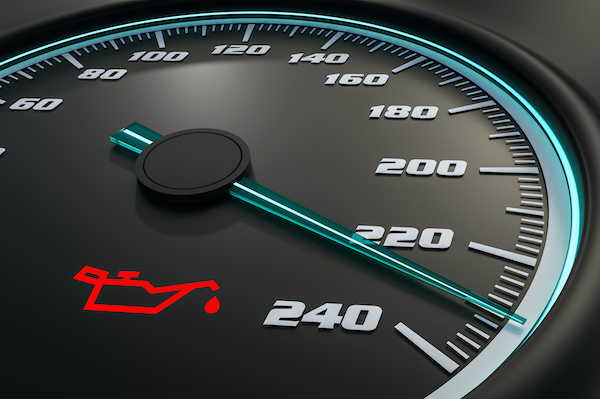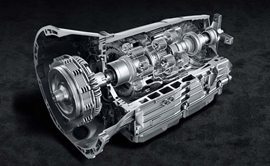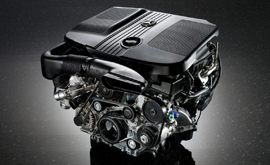Posted on 5/26/2021

Low oil pressure or low oil level may cause the oil light to illuminate for a variety of reasons. If your oil light comes on when driving, the first thing you can do is pull the car forward and turn it off safely. The explanation for stopping the car is that if your engine runs out of gasoline, it will stop and will not be able to continue. If the vehicle comes to a halt while you are driving, it can trigger an accident. As a result, driving with an oil lamp light on can be extremely hazardous. If your car's oil light has come on, here are some things to think about: Check the oil level in the system after the vehicle has been stopped. The dipstick can be used for this. Remove the dipstick, clean it with a towel, and reinstall it in the car. If the dipstick is dry or has a small amount of oil on it, you can have an oil problem and should not drive. Your oil light can also illuminate if your oil pressure is low. Low oil pressure indicates that the pump is not circulating enough o ... read more
Posted on 4/26/2021
.jpeg)
A spark plug plays an integral role in an engine in that without a spark, fuel will not ignite in the combustion chamber. Spark plugs are created to receive an electrical signal from the ignition coil and transmit it at a set time to make a spark that ignites the mixture of air and fuel within the combustion chamber. Every vehicle needs a certain kind of spark plug made using specific materials. Spark plugs, just like air filters and fuel filters, need regular service and maintenance to ensure the engine keeps operating well for a long. If you want to know whether your spark plugs are faulty, watch out for these symptoms; Uneven Idling Vibrations and uneven idling are major tell-tale signs of faulty spark plugs. Damaged spark plugs can lead to the engine becoming rougher and producing vibrations when you leave it at idle speeds. Engine Misfiring This refers to when an engine stops for a while and then resumes its normal functioning. This is usually noticeable when the car is idle ... read more
Posted on 3/17/2021
.jpeg)
If your car won't start, it is most likely due to a faulty or dead battery or a bad alternator. Both components work together to start your vehicle, so you might have trouble identifying exactly which part is at fault. Here are some of the unmistakable signs that will help you determine which of the two parts is the main culprit: Signs of a Failing or Dead Battery When your battery fails, you might experience problems trying to start your car early in the morning, especially during the cold season. In other cases, the vehicle will start then die down almost immediately. The battery warning light on your dashboard is probably one of the major signs of a failing battery. You might also notice that your car battery is visibly corroded, and in some instances, the battery appears swollen and oversized. Besides, you have already jump-started your car over the past few days-your batteries are clearly at fault. Symptoms of a Bad Alternator If none of the aforementioned symptoms point t ... read more
Posted on 2/18/2021
.jpeg)
There is no doubt you have asked yourself this question at one point. There are two types of gases prevalent in the automobile industry: premium gas and regular gas. Most vehicles are designed for regular unleaded gas, and that functions perfectly well. However, there are some luxury or high-end performance cars that require premium gas. Differences Between Premium and Regular Gas Premium gas is a super or high-performance fuel with a higher-octane rating compared to the 95-octane rating of standard fuels. The high octane rating of the premium fuel, which is approximately 98, improves the engine's efficiency and boosts the vehicles' performance. There are different versions of super fuel for diesel vehicles with a higher cetane rating. Premium gas costs approximately 60 cents more than a gallon of regular gas and 25 cents more than midrange gas. Follow The Car Manual Cars are designed to run optimally with a specific type of fuel. We recommend sticking to the manufacturer ... read more
Posted on 1/21/2021
.jpeg)
Your car's transmission fluid is just as essential as the oil. Regular vehicle maintenance is the key to a long-lasting transmission. Here's the information you need to help you determine when you should change your transmission fluid. What is Transmission Fluid? The viscous oil that enables your transmission to operate without malfunctions and failure is possible because of transmission fluid. This fluid is important because it prevents heat build-up and metal-on-metal friction. Best Maintenance Practices for Your Transmission If you own a vehicle that came with service records that show transmission fluid changes, stick with the changes that were set by the manufacturer. The recommended transmission fluid changes range between every 30,000 and 50,000 miles. What Happens If You Don't Change the Transmission Fluid? If you neglect to change your transmission fluid regularly, you will damage your transmission. Not changing your transmission fluid enables the fluid to be ... read more
Posted on 12/18/2020
.jpeg)
Different sensors control the performance and engine performance in different automobile engines. The sensors alert the car owner in any case of malfunctions in the car, making them essential components in the vehicle. The oxygen sensor is explicitly among the essential automobile sensors. The oxygen sensor has been a mandatory car component in car models, and it has become a regulation for all car manufacturers. An oxygen sensor is present in the automobile's exhaust system, and it resembles a spark plug. It monitors the presence of unburnt oxygen in the exhaust when the exhaust leaves the engine. It enables the measuring of the fuel mixture. It alerts the computer in cases of too much or too little oxygen. The correct ratio of fuel to air allows the engine to make appropriate changes to ensure the car runs smoothly. There are two types of oxygen sensors: binary exhaust gas and universal exhaust gas used in different vehicles. A car can have either one or multiple oxygen sensors ... read more
Posted on 11/29/2020

Vehicle service and maintenance are an integral part of car ownership. However, it's not always easy to detect when there's a problem. If the check engine light comes on, it's hard to tell if the problem is severe, such as an oil leak, or simple like a loose gas cap. If your Mercedes-Benz is having brake problems, it may be challenging to determine whether they need to be replaced or not. Our Mercedes Benz experts are offering three critical signs that it's time for a brake service. Low Brake Fluid Low brake fluid can be a huge problem if your car is relatively new. In this case, there may be a brake leak, and your vehicle should be inspected by a professional. One easy way to determine whether your Mercedes is suffering from low brake fluid is to pop the hood. Check the brake master cylinder; if you aren't sure where this is located, check your vehicle's owner's manual. If the fluid is near the minimum level, it will need to be topped off. However ... read more
Posted on 10/30/2020
.jpeg)
Mercedes-Benz is arguably one of the most reliable performance vehicles to hit the road. However, their electromechanical parts require consistent maintenance to perform at peak levels. Owning a luxury vehicle is a huge responsibility, but its longevity is unmatched when thoroughly cared for. While tune-up maybe an outdated term, it's the perfect opportunity to have preventative maintenance completed for maximum engine efficiency. It's essential to be aware of any abnormalities and get them fixed right away to prevent damage. Tune-ups allow your vehicle to be thoroughly inspected to fix small problems before they turn into big ones. If you haven't scheduled maintenance in a while, below are three common signs, it's time for a tune-up. The brakes feel spongy. A spongy brake pedal should be inspected right away because your vehicle will struggle to come to a complete stop. If this isn't addressed right away, it can make your drive more d ... read more
Posted on 7/31/2014

Never underestimate the importance of an automatic transmission. The servicing on these is extremely important because replacing one is extremely expensive. It’s not a question of hundreds of dollars, but thousands of dollars of repair work if the transmission breaks down. The owner of a Mercedes Benz has paid quite a bit of money to own that vehicle marvel he or she is driving. The durability of a Mercedes is well known but even this car can break down if proper attention to maintenance of the Mercedes is not paid. Mercedes, like other major auto mobile manufacturers have advertised in the past about the transmission being sealed for life without any need for fluid changes. That is something that is rarely heard anymore. Mercedes understands that transmission fluids are going to have to be changed. Benefits of Mercedes maintenance ... read more
Posted on 7/16/2014

The owners of a Mercedes-Benz understand they have not just purchased an automobile. Rather, they have invested in driving luxury pleasure. It is the acquisition of something that has been carefully designed by master craftsmen and the quality is planted in the purchase price. Sensible owners of the Mercedes line want to get as much return on the initial investment as possible. The engine of a Mercedes is well-built but it needs to be maintained. Mercedes diesel engine needs maintenance, particularly some of its major parts. Impact of air filter on high performance car: The air filter may seem a bit insignificant but on high-performance cars air filters play a major role. A Mercedes engine needs a lot of air to make it move and the filter sees to it that air goes into the engine unobstructed by debris. A clogged air filter is going to ... read more